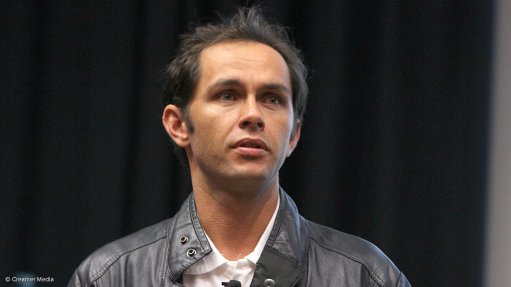
Project Isizwe founder and CEO Alan Knott-Craig Jr
Photo by: Duane Daws
The private sector should not look down on those who work in the public sector, asserted Project Isizwe founder and CEO Alan Knott-Craig Junior at the Innovation Bridge event in Pretoria on Tuesday. "A lot of guys that are in government are in government to make a difference. It's not a lot of fun," he pointed out.
From his own experience at working with metropolitan city administrations, Knott-Craig Jr has developed "four little secrets" for working with government. The first is to "[a]pproach them with humility and respect. They have the hardest jobs I've ever seen."
"Don't approach them as if you want to make lots of money," is the second secret. Obviously, companies want to make a profit, but they should not give the impression that they see government contracts as a means of coining it.
The third is: keep your promises. The fourth is "[t]ick all the boxes all along the way. Make sure all the paperwork is done." Everything must be done accurately and by the book. With other businesses, erroneous invoices can be embarrassing. With government, erroneous invoices can result in criminal charges and court cases and possibly prison.
Project Isizwe is a nonprofit organisation that facilitates the roll-out of free Wi-Fi networks, originally in South Africa but now also elsewhere in Africa. The aim is to promote education, economic development and social inclusion.
Tshwane (which includes Pretoria) was the first South African metropolitan area to agree to work with Project Isizwe. The city is now the biggest provider of free Wi-Fi services in South Africa, concentrated in the poorer suburbs (previously known as townships) of Atteridgeville, Mamelodi and Soshanguve.
Wi-Fi was chosen because it is much cheaper than 3G mobile technology, yet provides adequate fidelity for the purposes of the programme. Wi-Fi base stations can also be installed by semi-skilled labour, unlike 3G base stations. "We're using government infrastructure," explained Knott-Craig Jr. The base stations are placed on government buildings, including offices, libraries and schools, and on water towers, and tap into the electricity systems of these facilities.